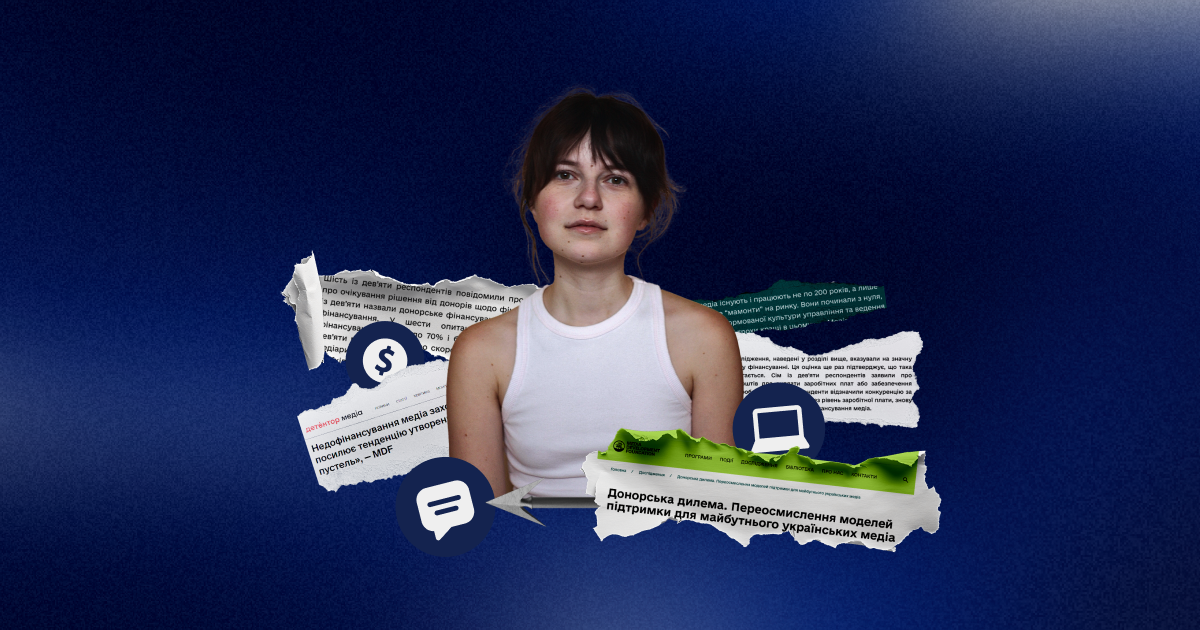"And May Good Fortune Be With You Always": On the Upcoming Hunger Games

It’s incredibly challenging to summarize or analyze a year when you’re stuck in limbo. Our media platform still exists, but I can’t confidently say we have concrete plans for the future. I deeply wish we did, but for now, survival is the only plan. That thought has been with me since October. “The main thing is to survive,” I tell myself, my team, and the donors.
In December, I managed to pay 60% of the team’s salaries. We’ve had to scale back—reducing the number of articles, halting collaborations, and even canceling the end-of-year review because there’s no way to fund salaries for that work. We continue reaching out to donors, but the response has been discouraging. Many organizations have shifted their focus and can no longer support us.
Over the past three months, we’ve sent 74 letters to donors. Ten have responded with rejections, while 60 haven’t replied at all.
It feels like everything has stalled, and we’re unable to move forward. After I finish writing this column, I’ll be on the phone with a fundraiser, trying to figure out our next steps.
Meanwhile, the media landscape feels increasingly like the Hunger Games—a relentless fight for survival amid war and crisis. Media outlets are struggling to stay afloat, pleading for donor support while simultaneously reminding readers of the critical role independent journalism plays and why it deserves their financial backing.
When donors narrowed their focus to supporting frontline and local media, it marked the beginning of the crisis we’re now facing. We’ve seen these tactics before—back in 2014. And where has that brought us? According to the Media Development Foundation, 2025 will be another difficult year for the Ukrainian media market, likely as challenging as this one, if not worse.
Over the past year, many donors have scaled back their support for the media sector, while others have shut down such programs altogether. Those who remain have shifted their priorities, directing funds predominantly to frontline and local outlets or limiting their contributions to project-based support.
The Lviv Media Forum’s report highlights that funding for Ukrainian media has surged significantly since February 24, 2022. However, it also predicts that media outlets’ need for financial aid will not diminish in the coming years—and may even increase. In contrast, donors expect this need to either stay the same or decline.
It’s hard for me to understand the rationale behind this trend. The full-scale war shows no signs of abating, the economy remains far from recovery, and Ukrainian media outlets are far from self-sufficient without external support. The path to standing on our own feet feels distant.
As a result, most media outlets are now turning to funds that provide emergency assistance, creating immense demand and fierce competition for limited resources. At times like this, I feel like a participant in the Hunger Games—only my situation is worse because all I can do is wait.
On the other hand, there’s the challenge of readers who don’t understand why media should receive financial support. From the comments I read and the feedback I hear, I’ve developed a hypothesis: many readers perceive the media as something overly prestigious—a kind of nouveau riche enterprise, where money flows like in Hollywood movies. The irony of this becomes apparent when I introduce myself as the CEO of an online media outlet and then explain that we are actively seeking funding. The reaction is often one of disbelief. Society seems content in the role of a passive spectator, but the truth is that society holds the power to help the media survive.
The problem runs deeper than it seems, and one column alone isn’t enough to explain why readers are reluctant to donate. However, the urgency of the situation leaves no time for in-depth analysis. It’s simple: either you donate, and the media you rely on continues to exist, or you don’t, and it closes down. Fast-food-style content on Telegram channels cannot replace comprehensive journalism. Without the media, you’ll lose access to interviews with military personnel, stories about the families of prisoners, or clear explanations of complex political events and global conflicts. Without the media, the country will be left vulnerable in the fight against misinformation and propaganda.
I hold on to the hope that donors will listen to Ukrainian media, understand our challenges, and realistically assess the dire situation we’re facing. In turn, I hope society will come to value the role of the media and recognize the critical need to support it.
And may good fortune be with you always. The Hunger Games have only just begun.


